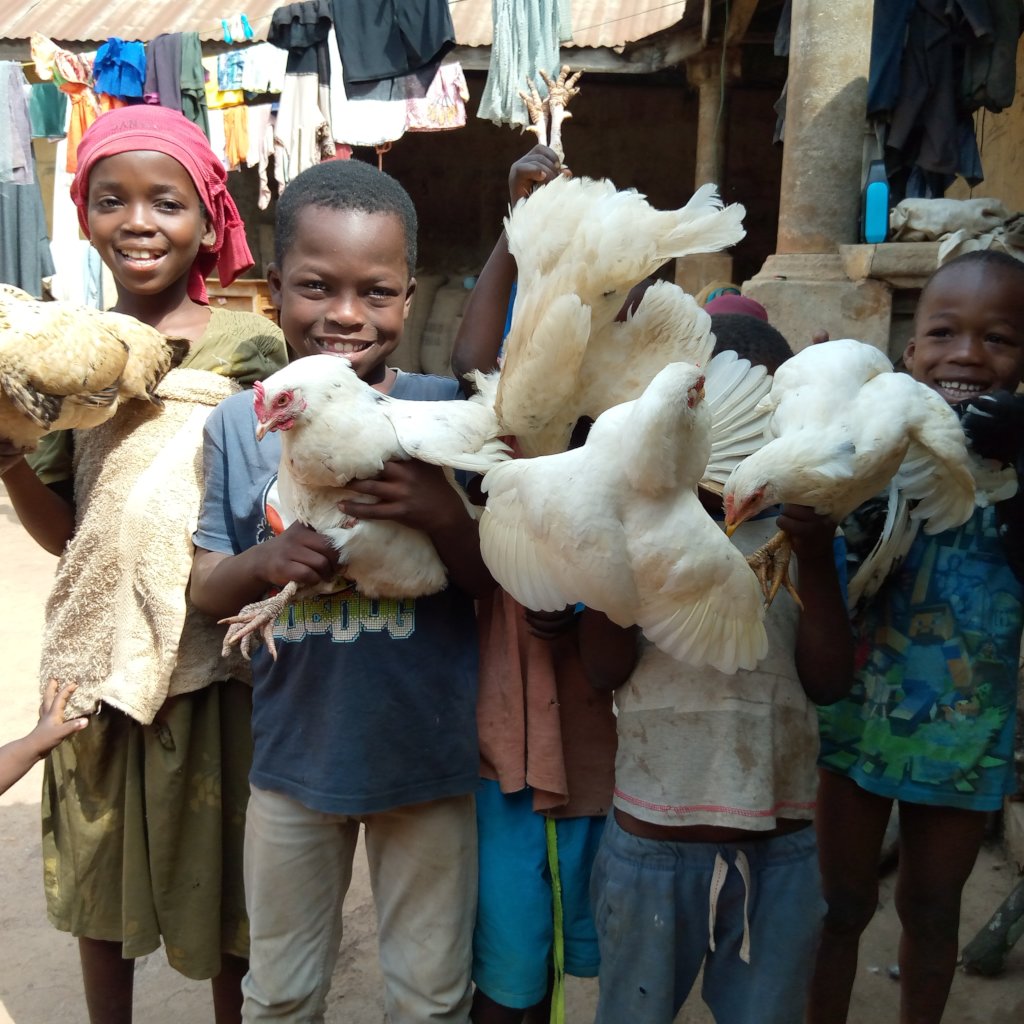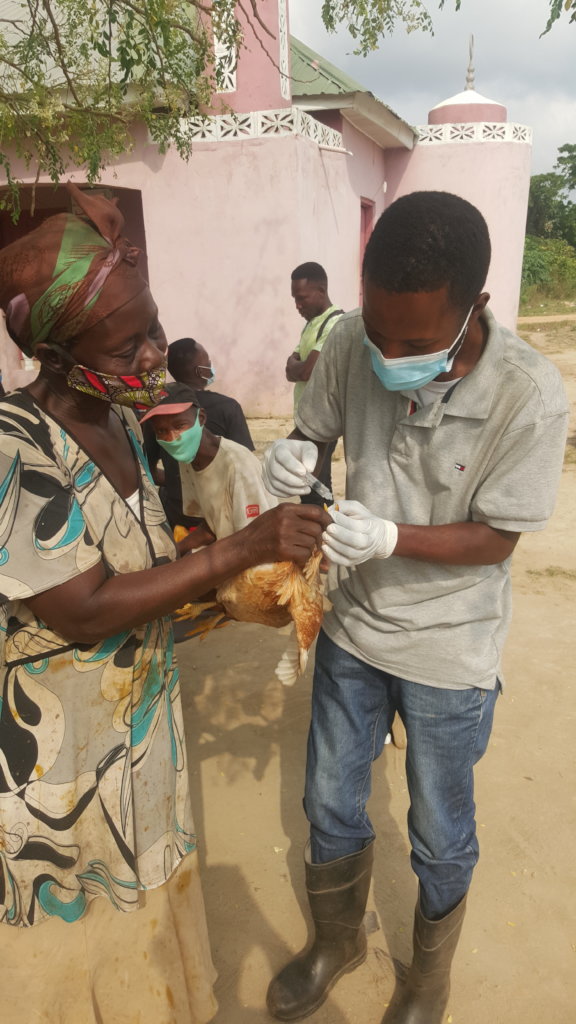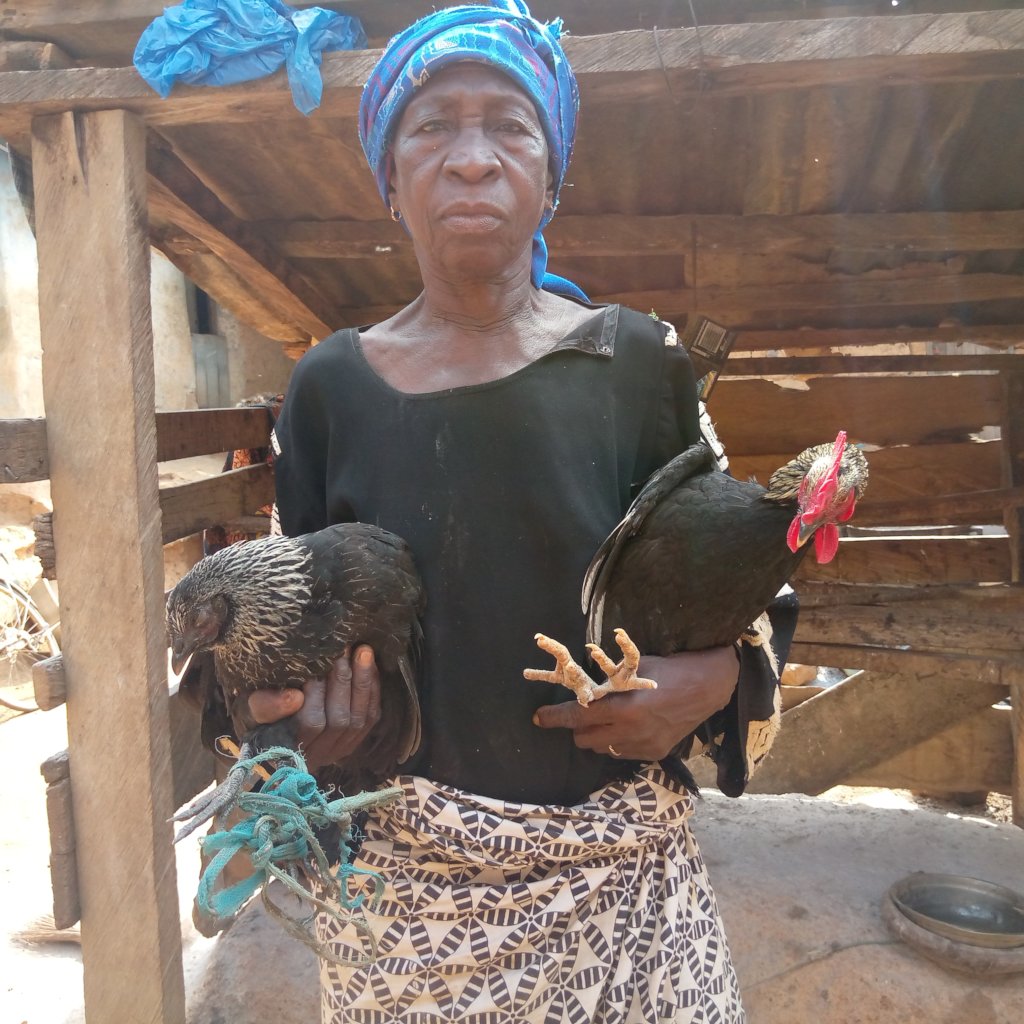By Justice Amoka Sam | Community Crop and Livestock Specialist
Rural poultry production is recognized as an important agricultural activity in many countries. Poultry is generally owned and managed by women and children, and the major source of animal protein in a rural family’s diet is poultry. Traditionally, the weight of village chickens and their egg output are low. Both of these things can be improved with factors like housing, disease control, management, and supplementary feeding.
Self-Help International estimates that over 90% of rural households in Self-Help’s partner communities in Ghana own poultry. Accessing veterinary services for poultry in these communities is a challenge in Ghana, and this causes them to lose their birds, especially during a disease outbreak.
One of the outbreaks that causes high poultry mortalities in Self-Help’s partner communities is the annual Newcastle disease. The Ghana Ministry of Food and Agriculture (MOFA) states that this disease kills more than 90% of unvaccinated birds during outbreaks between December and February.
Around November 2020, women that owned birds in some of Self-Help’s partner communities expressed concern about how they had lost almost all of their birds during previous years. Self-Help’s Agriculture Extension team did due diligence data collection in five partner communities to confirm the issue the women raised. From the data, Self-Help realized these communities lose over 5,000 birds annually. For sustainability reasons, the team also involved the Department of Agriculture and the Veterinary in dealing with this challenge.
Self-Help’s Agriculture Extension team, with support from MOFA, supported five partner communities - Timeabu, Beposo, Asuogya, Abompe, and Kukuboso - through a mass rural community vaccination program. 3,412 rural birds were vaccinated in January 2021. This exercise involved 132 houses that owned poultry.
In March 2021 during a follow-up on bird's response to the vaccines, the communities were thankful to Self-Help and the community poultry vaccination because they saw a great drop in bird mortality in 2021. This development will improve poultry output and household nutrition in these communities.
By Justice Amoka Sam | Community Crop and Livestock Specialist
By Zakaria Adams | Training Center Manager
Project reports on GlobalGiving are posted directly to globalgiving.org by Project Leaders as they are completed, generally every 3-4 months. To protect the integrity of these documents, GlobalGiving does not alter them; therefore you may find some language or formatting issues.
If you donate to this project or have donated to this project, you can receive an email when this project posts a report. You can also subscribe for reports without donating.
Support this important cause by creating a personalized fundraising page.
Start a Fundraiser

